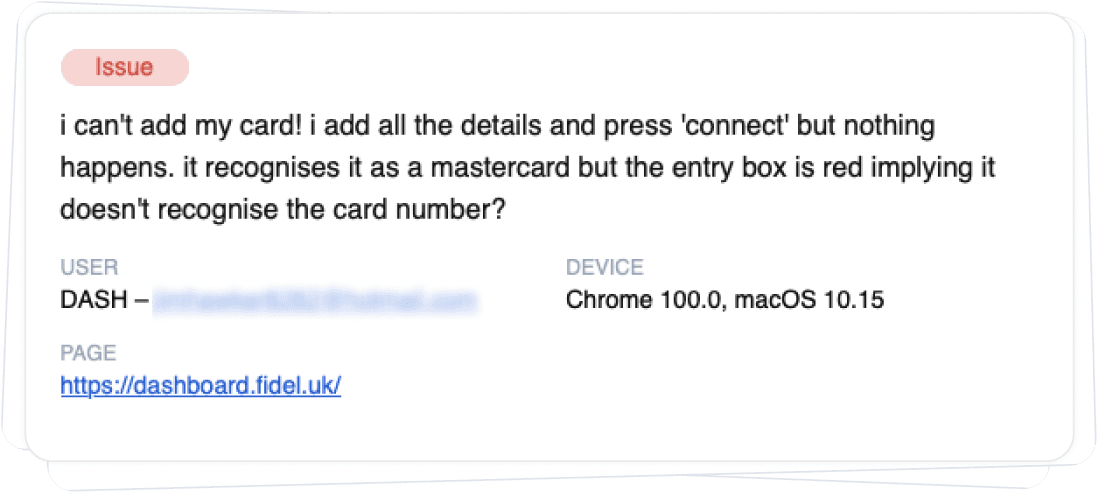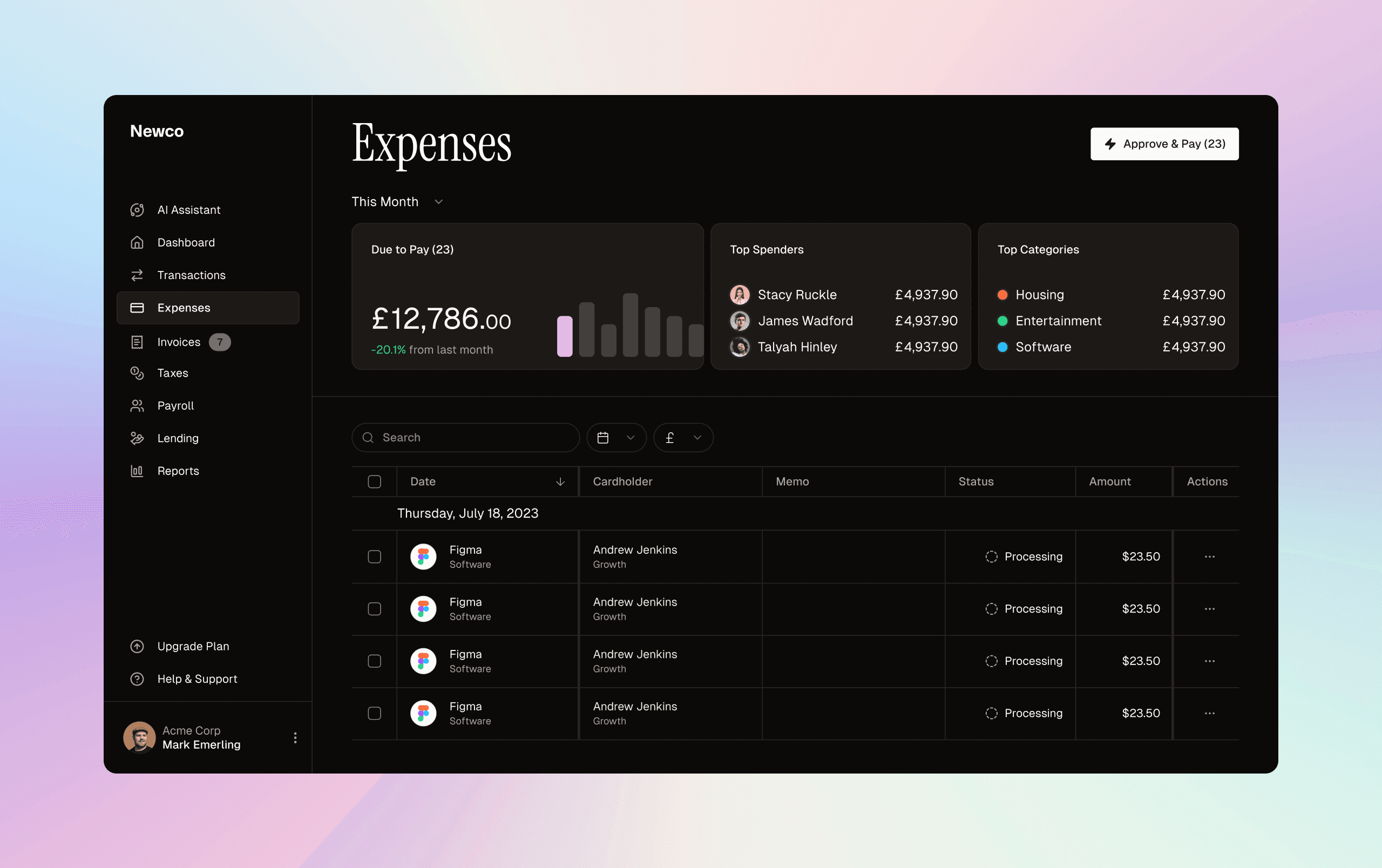Overview
Fidel API is a Fintech SaaS startup specializing in instant payment data through card-linking. To enable this technology, we developed an SDK that customers can easily integrate into their platforms. However, the initial version of the SDK was fairly bare-bones, had some flaws, and was developed before the introduction of new GDPR compliance requirements.
This revamp project aimed to address known issues while aligning with new business goals. To meet higher security standards and comply with network partnership agreements, we introduced cardholder authentication into the flow.
Contribution
User research
Product design
Usability testing
Team
1 × Product manager
1 × Product designer
2 × Engineers
Year
2023

Process
Feedback and Research
Through customer feedback and usage data analysis, we identified key areas for improvement. For instance, many users expressed a lack of trust in the original popup modal design, while others encountered inadequate error handling that left them uncertain about what went wrong.

Constraints and Challenges
Due to a complex mix of ongoing network partnership renegotiations, a change of leadership, and resource constraints following layoffs, the conditions for a smooth project were far from optimal. In response, our PM took a firm stance, rigorously scrutinizing the scope of work. Certain aspects were non-negotiable, such as maintaining the existing lengthy terms and conditions paragraph and leaving the structure of the card details form unchanged.
Focus on Trust and Security
After several iterations and prototypes, we established a baseline for our new flow. We introduced a welcome screen to build trust with users before presenting the card details form. Upon submitting their card details, Mastercard users were guided through a 3DS authentication flow, while Visa users underwent a micro-charge verification process—another decision driven by the constraints we faced at the time.
Outcome
Despite the challenges we faced during the project, the outcome had a significant impact on both the business and our customers. When we discovered that the micro-charge verification caused considerable friction and led to user drop-offs, it prompted deeper discussions with Visa. These conversations ultimately enabled us to implement 3DS authentication for Visa, unifying the card-linking flow across both networks.
Get in touch
If you want to chat about a project — send me an email on amessagetothomas@gmail.com.
I can assist with designing a website, creating a new product, enhancing an existing part of your product, building a scalable design system, developing landing pages in Framer, or crafting a custom icon set for your business.
Available for remote-friendly work.




